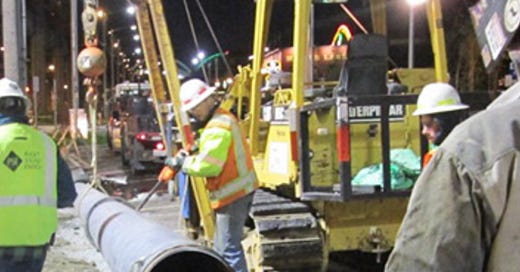Buildings emissions bill faces cutoff; a soda tax gets a hearing
Carlyle floats a new version of cap-and-trade after pushback from environmental justice advocates
Today is fiscal cutoff day, on which most bills with any kind of cost to the state need to clear House Appropriations or Senate Ways And Means. Both committees have long agendas that include some high-stakes bills. Like the policy committee cutoff we wrote about last week, it’s festival of influence and pressure, with lawmakers scrambling to get their b…
Keep reading with a 7-day free trial
Subscribe to The Washington Observer to keep reading this post and get 7 days of free access to the full post archives.



